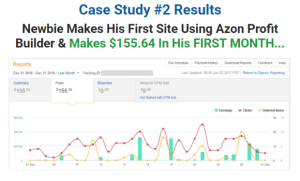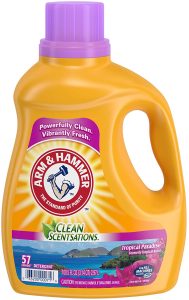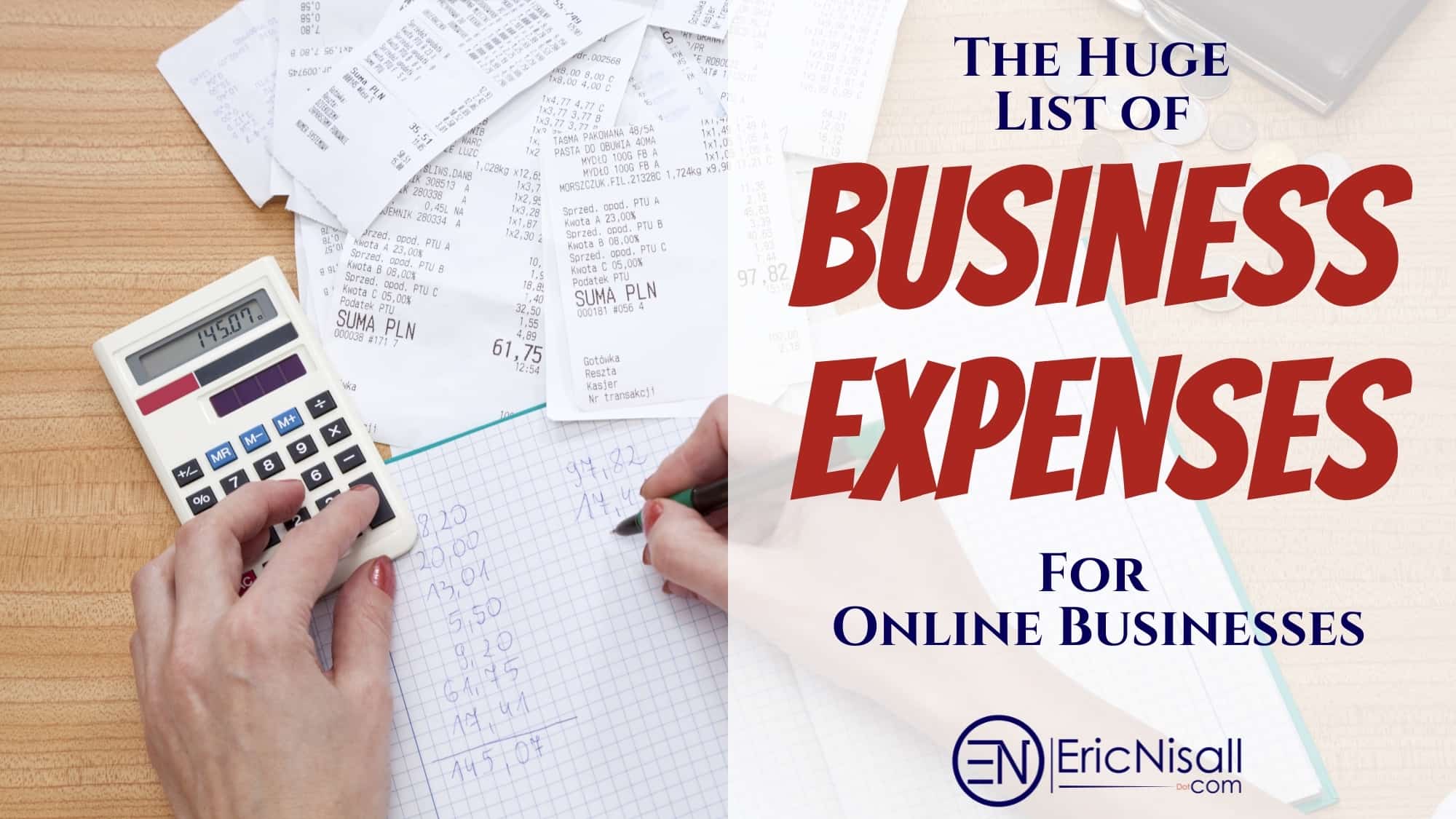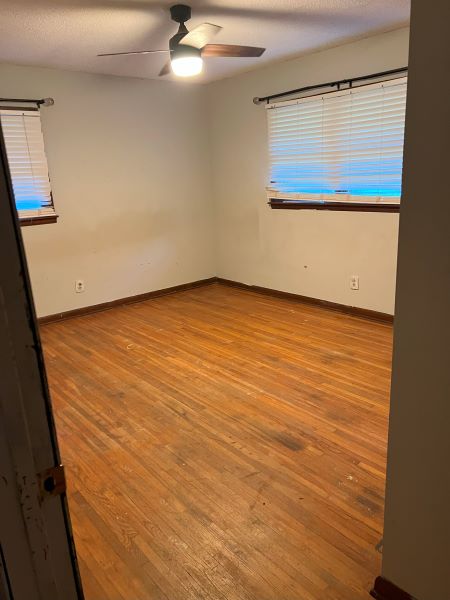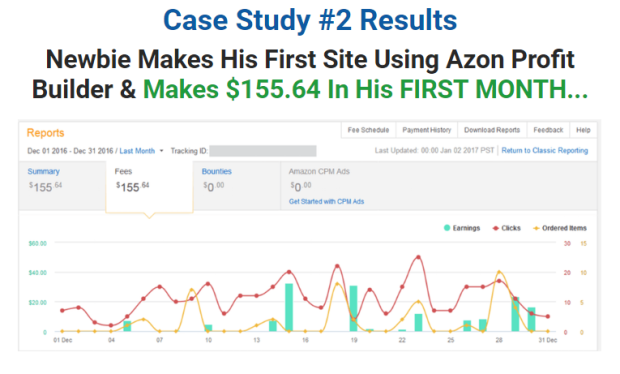Business expenses are a very very confusing topic for many business owners.
What’s deductible?
What’s not?
If I buy this thing in my business will I get in trouble?
It’s even more confusing when you consider that social media influencers are paid to talk about business topics like they’re experts.
Just because you “have a business” doesn’t mean everything you spend money on will be legitimate business expenses.
That is what we’re going to go over here:
Legitimate business expenses for online businesses specifically such as:
- Bloggers
- Podcasters
- Freelancers of all kinds
- Coaches
- Graphic/Website Designers
- Course creators
Truth be told, even though I aim most of my content at the online folks, this info applies to all businesses.
So let’s get started at the very beginning.
Basics Of Business Expenses
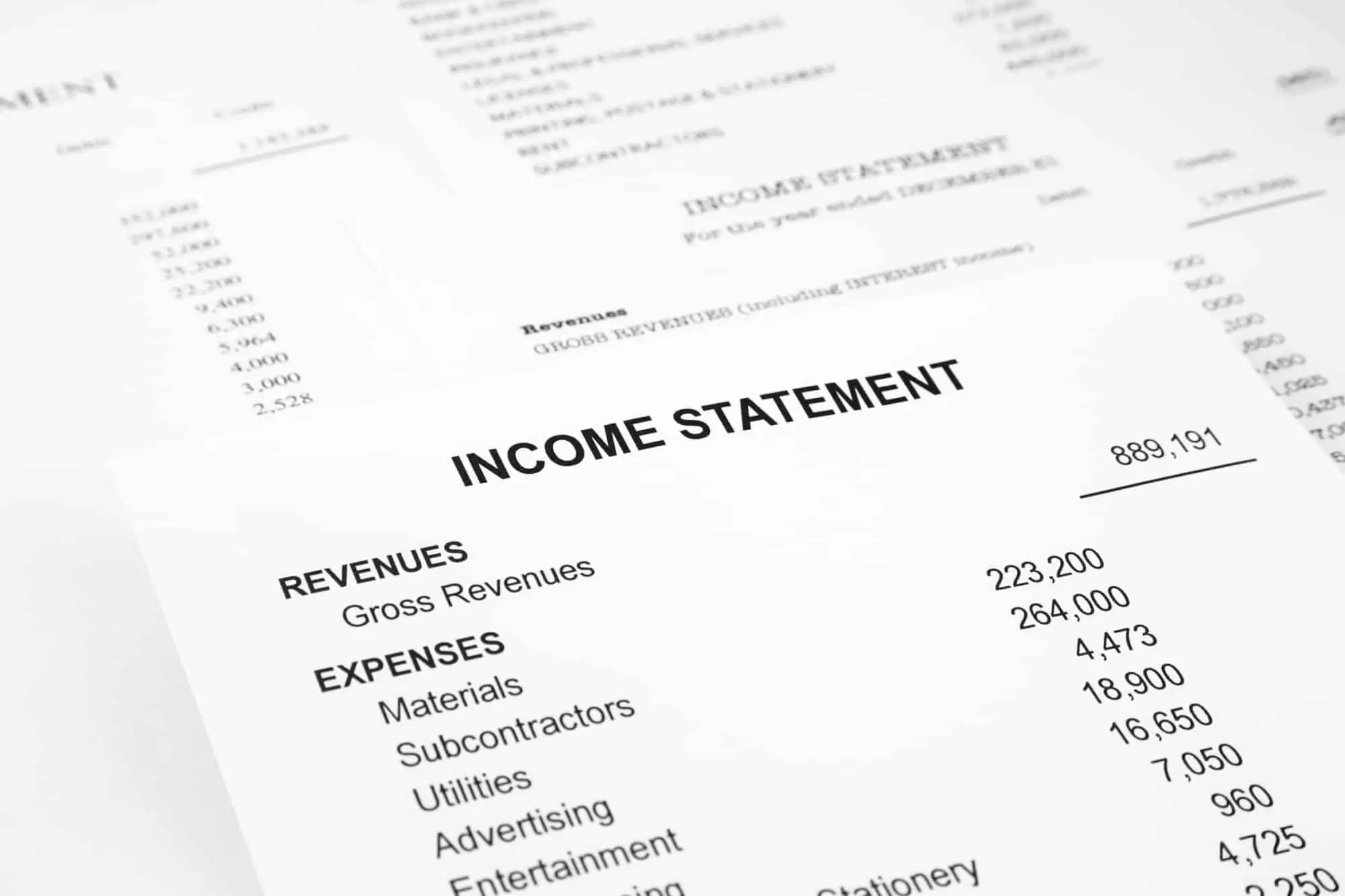
According to the IRS:
To be deductible, a business expense must be ordinary and necessary.
What does that mean?
For starters, it means that you have to compare apples to apples, and oranges to oranges.
You must look within your own industry to see what is commonly needed and/or used in business.
A landscape engineer can’t look at a legal firm and say “Well I know someone and they are deducting so-and-so”.
And vice versa.
It simply doesn’t work that way.
If an expense is ordinary–in that is common within your industry–you’re halfway to being able to deduct it.
The second part is “necessary”, meaning it’s a requirement for you to run your business.
For example, the landscape engineer can buy a pickup truck through their business.
It’s “necessary” for them to be able to get around from site to site and be able to carry all of their equipment.
You, as a home-based blogger or a VA with no local clients?
There’s no necessity component to the business owning a vehicle, so that would be a no-no.
If you can say that it’s an “ordinary” expenditure and one that is “necessary” for you to do your job then you, my friend, have a deductible business expense.
Now that you’re (hopefully) clear on what makes an expenditure a business deduction, let’s take a look at what you can freely spend money on!
Money-Related Business Expenses

This is a screenshot from one of the Facebook groups I belong to.
It’s in regard to credit card processing fees.
It reflects a very common problem people face when starting out…and even when you’ve been around for a while too!
When it comes to money-related issues, you can deduct anything that is charged in conjunction with collecting, maintaining, or sending money.
That includes:
- Bank maintenance fees
- Bank overdraft/interest charges
- Credit card annual fees
- Credit card late payment fees
- Credit card interest
- Merchant services account fees
- Loan interest
For those who don’t know, merchant fees are any cost/deduction that a payment processor charges or deducts for its service.
That includes both the percentage and flat transaction fee amounts charged by PayPal, Square, Stripe, QuickBooks Payments, your bank’s merchant processing system, or any other service.
Some people–myself included–would consider membership fees to be “dues and subscriptions” (covered a little later) but I figured I’d keep all credit card stuff together.
It really doesn’t matter much except for classification purposes.
This is also why it’s important to have a separate business account.
You are not allowed to deduct any of this on your personal tax return for individual purposes (meaning without a business).
So, even if you had “mixed-use” accounts, you would have to be very careful in claiming any of these as business deductions because of the shared aspect.
At the very least you should be allocating a percentage to your business use, and only deducting that amount…but it’s just a heck of a lot easier to have a separate account dedicated 100{e6a1e97ec1a15155ca0ed8c3e87721e561c99ed6e52274045963a20278fc2089} to business purposes.
Website Expenses
This is a biggie because a small business website is a necessity these days!
After all, this is where we business owners sink a lot of our money lol.
Well, actually, in the beginning, many of us probably went the cheap route and choose free hosting like wordpress.com and blogger with themes that didn’t cost anything either.
Then once you realized how bad of a choice it was you hopped on the self-hosted bandwagon just like I did! 🙂
That’s when we started shelling out money for all these little things to get our sites up and running like domain names and hosting accounts.
Then came the growth where some of the free options just didn’t hold up and a better, more robust option was necessary.
So we started buying premium plugins and more advanced premium themes.
Then backup and security monitoring services.
The question I most often get about these types of purchases is:
What website expenses can I deduct through my business?
Almost every onlne business owner
The answer is pretty simple:
If you are monetizing your site–meaning you are actively trying to profit from it as a business or using it as a marketing tool–then anything you purchase in relation to it can be paid for by the business.
That being said, you’d be surprised at how many times people don’t include one or more of the following expenses when they give me their expenses listings at tax time:
- Domain registration
- Domain Hosting
- SSL certificates
- Maintenance services
- Themes
- Plugins
- Images
- Fonts
Online Tools/Cloud-based Services
Now that you know practically all of the costs to get your blog up and running are legit, deductible business expenses, it’s time to look at your marketing.
You know, the things that you need to do to let people know of your existence on the web.
After all, this isn’t Field Of Dreams, and no one will come just because you built it (I may be seriously dating myself with this analogy!).
You need to get out there and do marketing and promote your site or else no one is even going to know about its existence–aside from family and close friends perhaps.
There are a lot of free things you can use like Facebook, Pinterest, Twitter, email, and a host of others depending on what you want to do in terms of marketing.
However, sometimes you just can’t get away with using free versions of apps or platforms to do what you want.
Sometimes the free versions just aren’t powerful enough.
Other times, the apps or programs limit your free use before you are required to start paying.
For others, you may simply feel the need to pay so you can remove the existing branding and only have your own branding appear to the public.
So what can you pay for with your business funds and actually deduct?
Tools and services like:
- Content creation
- Social media marketing
- Email marketing services
- Graphic design programs
- Team communication apps
- Online storage
Digging a bit into these resources, we have…
Content Creation
The first thing to understand is that content creation involves more than just writing.
It involves managing teams, organizing ideas, project management tools, and a ton more.
Tools like Evernote for organizing ideas or Trello or Asana for managing teams and projects are free in the simplest versions. When that happens they all have “upgrades”–meaning paid versions that unlock more powerful features–obviously for a cost.
Social Media Marketing
Think beyond the actual platforms.
That means we’re not considering Facebook, Twitter, Pinterest, Instagram, or any other platform itself.
For this, we’re speaking of automation and dashboards.
Programs like Hootsuite for monitoring multiple platforms at once.
Apps such as Edgar and Tailwind for scheduling updates.
Some of them are free for basic usage needs while others cost right from the start.
Email Marketing Services
If you don’t already know, you’ll soon find out: your email list is the most asset you have, regardless of the type of business you run.
At least that’s what practically everybody says lol.
For the most part, if you want to do stuff more than just blasting broadcasts or sending out the latest post on your blog to your list via the RSS to Email function, you’ll need to pay for a service.
You may have a sales funnel for prospective clients.
Or a set of reminders based on dates and the industry you are in (ie: accountants and quarterly estimate reminder messages) you need more advanced functions.
All of your email service payments, like say for a service like ConvertKit or MailerLite, will fall under this category.
Graphic Design Programs
Pinterest.
Blog feature images.
Facebook ad campaigns.
Shareable quote images.
Whatever the purpose, you need to be using images in more creative ways now.
There are sites like PicMonkey and Canva that allow you to make basic images free of charge.
Unfortunately, like anything, you get what you pay for.
The fee versions allow for basic functions and features, so you’ll have to pay to access premium stuff.
But the good news is that it’s all deductible!
Independent Contractors & Professional Services
Ah, the famous question:
“If I pay so-and-so to do this-or-that, can I deduct it?”
Well, the answer is usually yes!
Plus, I am a huge proponent of outsourcing tasks that you aren’t an expert or proficient at.
That is if it has a direct correlation to your business.
Let’s look at some of the jobs you would commonly hire contractors to do that are definitely going to be deductible:
- Social media managers
- Virtual assistants
- Writers
- Designers
- SEO pros
- Bookkeepers
- Salespeople
It’s a pretty straightforward section and each of those professional types don’t need any explanation.
I will say this, however:
Remember I mentioned being able to deduct a pro’s fees if they are directly related to your business itself?
It’s going to be touched upon later on, but I figured it couldn’t hurt to talk about it here too, considering it’s quite similar.
There are some business-related professional types that you are going to be able to write off even though they don’t have anything to do with your itself.
Some examples include:
- Accountants
- Lawyers
- Factoring companies
- Business coaches
- Professional organizers
- Retirement specialists
- PR firms/agents
A few are straightforward like accountants and lawyers.
Some of the others may give you pause, but I assure you they are perfectly legit, so let’s take a look at some examples:
Factoring Companies
Not every business works on a COD (cash on delivery) basis.
Many small businesses invoice their clients and then hold their breath in the hopes of being paid timely.
Sometimes, you have a lot of clients that take forever to pay, if at all.
That’s when you bring in a factoring company to help collect on those outstanding receivables so you can at least get paid something for your time and energy.
Business coaches
No, this doesn’t mean a “life coach” or some retreat to the woods to rediscover yourself.
That’s…well…something else entirely.
A business coach helps you in actual facets of your business like marketing, sales, pricing, etc.
Pretty much if it impacts your business directly, it’s good.
They help you recognize strengths & deficiencies in how you actually run your business.
That helps you to both earn more as well as reduce your spending, both having a positive impact on your business.
Yeah, that’s absolutely deductible so keep paying those people who teach you to do Facebook Ads or how to position yourself as an expert in your industry!
Professional Organizers
Let’s face it, many of us may have problems keeping our work areas neat and orderly.
Personally, I don’t have that problem because I abhor paper so my office is really minimalist(ish).
But I know a bunch of people who have hired organizational professionals to optimize their working environments.
That gets a big yes for a qualified business deduction (assuming you only hire them for your home office and not any living areas).
CFP/Pension Administrator
Once you reach a certain profit level, you’re going to start looking at “other ways” to save on taxes.
One such way is to give yourself a retirement plan other than an IRA.
That way you’ll be able to save a much larger amount for retirement.
Oh yeah, and they also help reduce business profits, thereby reducing your taxes which equals a big-time deductible expense for their time!
So, even if you are getting personal financial advice, as long as your business planning is part of the equation you will be able to take at least part of it as a business expense.
PR Firms & Media Agents
You might not think about it, but there are plenty of small businesses that use media agents or marketing agencies.
Some use them to get placed on television.
Some use them to get booked on podcasts.
Others even use them to book paid speaking appearances.
Literary agents as well if you want to write a book.
Anytime you pay someone to put you in a position to talk in front of an audience, be recognized as an expert based on your experience, or get paid for anything you get to deduct it!
Business Development
What’s the most important thing about running a business?
Growing it!
I know a bunch of you said making money, but the thing is you have to grow in order to make more, right?
And by grow, I don’t necessarily mean in size as in hiring employees or needing to lease office space.
“Growth” can mean:
- Honing existing skills to be more efficient
- Learning new skills to deliver more value
- Creating & developing premium content
- Expanding your professional network
See, there’s a lot more to it than just making more money.
But what exactly does that mean in terms of spending and being able to actually deduct as business expenses?
The answer to that is relatively simple as you can deduct:
- Webinars & courses
- Conferences & events
- Networking meetings
Let’s take a closer look at these categories…
Webinars & Courses
This one is something I get asked all the time!
We aren’t talking about formal education here, but rather task-specific learning.
Education that leads to a degree is something completely different, especially if it doesn’t do anything for your business.
For instance, if you take Michelle Schroeder-Gardner’s course called Making Sense of Affiliate Marketing to monetize your blog, you’re golden.
If you take Holly Johnson’s Earn More Writing course to start getting paid to write for others, you’ve got no problems.
Heck, even if you take Lauren Bowling’s Beginner Blog Accelerator for starting/improving your blog you get a thumbs up!
On the other hand, a course teaching you how to code video games isn’t going to be a business expense for an SEO company.
Conferences & Events
Now we get to the fun stuff hahaha!
I mean, who doesn’t enjoy going to a conference where you get to see all of your online friends in one place?
And it’s even better if it’s a conference like FinCon (the Financial Bloggers Conference) that not only gets attendees educated but also knows how to show them a great time as well!
Just remember, if it’s a conference related to your specific business or in general, you’re good to go!
But, if it’s something for your day job or something that doesn’t play directly into your online business, then it’s probably a no-go.
In other words, you can’t go to a microbrewing conference if you are a website designer–sorry I know how that one can hurt some of you.
Networking Events
Personally, I’m not a big fan of networking groups, and especially of writing off meetings held at bars as business expenses.
I mean, let’s face it, most of the time you’re not really talking business anyway.
Personal feelings aside, it’s a standard practice in almost every field.
And that means it fits into the “ordinary and necessary” qualifier of the business expense definition.
So by all means pay for it with your business card!
Operating & Everyday Business Expenses

There are the obvious business expenses that you have to pay for during the ordinary course of work.
Those are business expenses that directly impact your ability to successfully run and grow your company like the items we’ve already mentioned:
- Website-related costs
- Online tools
- Contractors
- Business development
But there are a lot of behind-the-scenes costs that are equally as important–and coincidentally deductible.
Costs that are practically unavoidable in many cases such as:
- Legal & Accounting Services
- Computer programs & apps
- Membership Dues
- Travel
- Marketing & Promotion
- Advertising
- Corporation/LLC formation & DBA registration
- Business Insurance (not health)
- PO Box rental
- Office Rent
- Office Furniture & Equipment
- Office Supplies
- Postage
- Business Gifts
- Payroll
This can be a lot to take in so we’ll look a little closer at a few of these items…
Legal and Accounting
A lot of people are tempted to try to do everything themselves.
They’ll spend time trying to draw up contracts, disclosures, or terms and conditions for their sites.
Or they’ll spin their wheel trying to figure out tax stuff and still end up unsure of the answer.
You can hire one of these people for a single hour’s worth of work or keep them on a monthly retainer.
Regardless of the amount you pay, as long as they are dealing with a business-related issue, you get to deduct it.
And don’t forget to deduct the cost of hiring a tax accountant for your tax returns as well!
Computer Programs & Apps
No, we’re not talking Candy Crush, Angry Birds or whatever game app is popular these days!
We’re talking Google Workspace or Microsoft Office for document creation.
QuickBooks Online (never QuickBooks Self-Employed) for your bookkeeping needs.
Asana for project and team management.
Any of those, and many more that would take forever for me to research and list individually!
Just make sure it’s truly a business need and not something you want for yourself and “occasionally use it for business”.
Membership Dues
Let’s get this one out of the way right off the bat: clubs for pleasure, recreation, or social purposes are not deductible as business expenses regardless of what you do there.
It’s spelled out specifically and explicitly by the IRS.
That being said, BNI and Toastmasters work fine.
Paid newsletters and professional publication memberships are good.
Professional groups such as CFP and bar associations get a pass as well.
Anything for your business and to maintain a professional designation will be covered as long as it’s a major part of your business.
Travel
Here we’re talking about local travel as part of your normal operations.
The long-distance-type travel stuff is covered in the next section, appropriately enough called “Travel” hahaha.
This part covers your gas, parking, tolls, train, subway, cab/Uber/Lyft, however you get around town to meetings or meetups or to get to the post office from your “office”.
Just remember: commuting to your office or taking the kids to practice or to Chuck E. Cheese’s doesn’t count.
Marketing & Promotion
Do you use one of those “text to sign up” thingies?
How about paid versions of Buffer or Hootsuite?
A service to send out push notifications?
Ever make business cards or letterhead or anything else with the business’s name and/or logo?
Anything that you spend money on to make people aware of your business is marketing.
Those my friends are definitely a legit business expense!
Advertising
Actually a particular type of marketing, I prefer that people track advertising separately.
Why?
Because it has a distinct purpose and approach.
It’s the practice of targeting a specific audience with a specific message or call-to-action (you’ve heard the term CTA before).
So things like Facebook ads, sponsored tweets, or paid placement in an online newsletter are all advertising expenses
They are crafted and targeted, unlike marketing expenses which are more generic and widespread.
Corporation/LLC Formation & DBA Registration
There’s always a cost associated with forming a business.
Whether you are paying the state directly for DIY biz formation, or if you’re using a service like MyCorporation and paying for the full-service package it’s all the same.
It’s not just the costs of forming your business or claiming your fictitious name that can be expensed.
You also get to deduct the cost of renewals regardless of the term (depending on the state and the type of biz transaction it can be anywhere from 1-5 years at a time).
Also the fee for a Registered Agent as well as any additional service such EIN application.
Business Insurance (Excluding Health)
You should have insurance.
Media Liability.
Business interruption.
Home business insurance.
General liability.
And if you have a commercial vehicle, car insurance premiums as well.
Your regular homeowners or renters policy isn’t always going to cover your needs as a small business owner.
Any insurance coverage that is distinctly business-related–even a business rider on your personal coverage–is able to be deducted as a business expense.
Your health insurance, on the other hand, is a personal expense that doesn’t get run through the business because it doesn’t affect self-employment tax.
There is a little wrinkle that you can read about concerning the self-employed health insurance deduction for a complete explanation.
Rent
There are various kinds of rent expenses for business owners.
You can rent an office suite in a building or office park.
There are places that allow you to rent a room with a single shared receptionist/lobby/kitchen.
There are coworking spaces.
Even renting a P.O. Box (USPS or UPS Store) counts.
Office Furniture & Equipment
You kinda need someplace to work, even at home, right?
I mean, it’s not like you’re expected to work on the floor.
You need a desk.
And a chair.
Perhaps a chair mat so you don’t mess up your floors.
That all seems about right.
But it doesn’t stop there.
You can buy bookcases.
If you’re into the more modern off-the-floor look, you can buy floating shelves.
Lighting also counts.
As long as you aren’t using it in the living room or family area for all to use, you get to run it through the business.
Let’s not forget, you’re probably gonna need a computer of some kind.
Maybe a printer or scanner as well.
Many of the equipment items you need to effectively operate your business can be written off as business expenses.
Office Supplies
Oh, the list of crap that falls into this catch-all of an expense category lol.
Everything from paper goods to writing instruments to art supplies to cords and cables to organization products to white/chalk/dry-erase boards and accessories.
There are so many different items that you use in the ordinary operation of your business that it would be hard to list them all.
To keep it short & sweet, I think the easiest way to do it would be to say anything you use strictly for business purposes that you can get at an office supply store counts!
Postage
It may not be the first thing on your mind that would be deductible for business purposes but it is.
Any time you need to ship things in the running of your business, you can pay from your business.
That means mailing in your estimated tax payments
Or send out gift cards to winners of a giveaway you host to grow your social media and email list.
Even thank you cards you may send out to random folks for no reason other than to say, well, “thanks”!
if you still mail out invoices and statements, that counts too!
All kinds of physical business communications fall under this category.
Business Gifts
Speaking of thank you notes, you may decide to send something a bit more.
Perhaps you want to send your best customers a little gift you know they will like.
Maybe you want to send a mentor a thank you gift for being there for you.
Maybe you want to send a business partner a little something extra for their help.
If you perform a service you can also give clients a gift for joining your crew.
Just be aware, however, that there is a limit to how much you are allowed to spend on “business gifts”.
The IRS limits business gifts to a maximum of $25 per person per year. That doesn’t mean you can’t spend more, just that you can only deduct $25.
Payroll
Not many people have actual payroll, simply because it’s so much easier to hire people on a contractor basis and pay them via PayPal or credit so you don’t have to file any paperwork at the end of the year.
But for those of you who do reach the point where you have real employees, or become an employee of your own S Corporation, much of the associated costs are deductible.
The employee wages.
The employer’s match of the FICA taxes (Social Security and Medicare).
Unemployment insurance (both state and federal).
Retirement contributions and/or matches.
The fee payroll companies such as Gusto charge for those services.
Also, if you pay for employee health insurance you get to deduct that too (other than the health insurance of the >2{e6a1e97ec1a15155ca0ed8c3e87721e561c99ed6e52274045963a20278fc2089} shareholder-employee which I referenced in the “Business Insurance” section above.
It’s important to remember that if you are self-employed–a sole proprietor or single-member LLC treated as a sole prop for tax purposes–when you “pay yourself” (ie: take a draw) that’s not a business expense.
Business Travel
Travel, yes, now we’re getting into more fun stuff!
The part where we get to take our family with us on those conference trips and write off the trip to Disney/Six Flags/Yellowstone or wherever, WOO HOO!!!!
Waaaaaiiiiiiit just one second there.
That’s not exactly how it works now.
Plus, if you have a full-time job while blogging on the side until you can make a full go of it, then driving to work and back home doesn’t count either.
Then how does it work you ask?
I’m so glad you asked!
First, let’s look at what you can possibly deduct in general:
- Plane/Train/Bus Tickets
- Hotel/Motel
- Cruise
- Car Rental
- Gas/Parking/Tolls
- Car Services
- Baggage Fees
- WiFi/Internet
These are pretty self-explanatory so each category isn’t going to require a breakdown or examples individually.
But there are a couple of things that do need explaining
Cruises
This doesn’t mean your family vacation to the Caribbean or that around-the-world cruise you’re planning for your retirement kick-off.
No, this is specifically for business-related purposes.
One example is Podcast Movement and the Podcast Cruise.
While it was held on a cruise ship, the intent was training, education, and growth so that is a totally awesome way to spend some legitimate business money!
Car Services
Any method you use to get around town during a conference, training, mastermind retreat, or sales trip is a real business expense.
It doesn’t have to be a regular yellow cab.
It can be a rideshare service.
It can be a rental scooter.
Heck, it can even be a bicycle-pulled cart or simply a rent-a-bike.
Remember I said something about combining family vacations with business trips all the way in the beginning?
This is a biggie folks, so pay close attention!
You can only pay for the business portion of your travels with business funds.
I’ll say it again to emphasize the importance of this rule:
You can only pay for the business portion of your travels with business funds.
How do you do that if your family is staying with you in the hotel at overlapping periods–like the last day or two of your business portion flowing into your family portion?
Well, thinking the hotel is going to be of any help is wishful thinking…they aren’t going to try and do pro-rations of the bill based on who stays and when lol.
What you have to do is calculate the proper ratios and then apply that to all of the costs.
When you know how much money was allocated to each segment you can then reimburse yourself personally from the business if you paid it all out of pocket.
Or if you paid it all on the business then I would put that money back into the business from your personal funds.
This will ensure that you are creating that distinction between your business and your personal spending, and it’ll also make sure your reports are more accurate when you look at your budgets on each side.
Business Utilities
How do you work on your business?
I’m guessing 70-80{e6a1e97ec1a15155ca0ed8c3e87721e561c99ed6e52274045963a20278fc2089} of you will say on your own equipment in your own home.
What about the other 20{e6a1e97ec1a15155ca0ed8c3e87721e561c99ed6e52274045963a20278fc2089}?
A small percentage of people actually have a dedicated office with its own utilities.
I’m going to say the remainder does a good amount of their own side-work at their full-time job.
No judgment, I promise!
In fact, that’s kind of how I started too.
I spent so much of my time at my job I didn’t want ideas to escape me until I got home to finally find the time to implement them.
So, I ended up working on my own stuff while at my desk during the day ????
But that’s wrong so I don’t want to encourage it hahaha.
So back to the original point…many people don’t know that you are allowed to deduct some personal expenses through your business:
- Internet
- Landline
- Cell Service
- Hotspot
One word of caution, however:
YOU CAN NOT PAY 100{e6a1e97ec1a15155ca0ed8c3e87721e561c99ed6e52274045963a20278fc2089} FROM BUSINESS FUNDS.
Why not?
One very simple reason–you can only deduct something fully if you use it EXCLUSIVELY for business purposes.
Other than that, you have to take a prorated amount for business use, but it’s not unheard of to actually take 50{e6a1e97ec1a15155ca0ed8c3e87721e561c99ed6e52274045963a20278fc2089} or more as a business deduction if you can honestly back it up.
And, yes, I know that a lot of people will ask “what’s a landline!?” but trust me, there are still a lot of people who use them.
How to deduct 100{e6a1e97ec1a15155ca0ed8c3e87721e561c99ed6e52274045963a20278fc2089} of utilities
There is one perfectly legal way to pay for any of these utility expenses without any worry:
Pay for a separate line of service.
That way, you can point to one line of service and say “This one covers my family ” and then point to the other and say “That one covers my business specifically and no one else.”
It’s just like the separate bank accounts I spoke about earlier. If you can show a clear line of separation, it’s much easier to deal with!
Some people may be asking “Well, what about other kinds of utilities like electric bills and cable television and stuff like that?”
That I’m going to cover in an entirely separate article.
Audio & Video Equipment
Here’s an extra special bonus for all you vloggers, podcasters, live streamers, and other multimedia types out there!
I know many of you have been sitting there like “Well, podcasting and FB Live/YouTube/Twitch are really important, I wonder if those count as business expenses.”
How did I know that?
It’s one of the more common questions people ask me lately!
Podcasts, YouTube channels, Twitch & Instagram live streams have become just as integral to a business as blogs before them.
That means you can spend your money on these items and not have to worry about not being able to write them off as business expenses:
- Mics & accessories
- Cameras
- Mixers
- Audio editing apps
- Video editing apps
- Podcast hosting
- Video Equipment
- Voiceover work
- Video editors
- Podcast editors
It’s pretty much a given that you’d have to be allowed to deduct this stuff.
I mean, without any of it, you have no content or anyplace to share it.
Talk about meeting the “ordinary and necessary” qualifiers for business expenses hahaha.
Clothing & Makeup As Business Expenses
Are you using video to increase your online presence?
Maybe you hit the “big time”?
You know, that point where you’re sought after for on-screen interviews.
Or as a public speaker in your specific area of expertise.
Or as a paid brand representative or spokesperson.
If so, congratulations!
It’s great that you have reached such heights in your business.
Unfortunately, I do have some bad news for you.
Most of that money you spend to look good on camera isn’t a valid business expense.
IRS Rules For Clothing, Hair & Makeup
Generally speaking, a business expense is anything that is ordinary and necessary to the operation of that business.
I hate to be the one to break it to you, but the IRS is very clear on this issue.
It isn’t enough that you wear distinctive clothing. The clothing must be specifically required by your employer. Nor is it enough that you don’t, in fact, wear your work clothes away from work. The clothing must not be suitable for taking the place of your regular clothing.
What this all boils down to is one fact:
If it’s suitable for everyday use, it’s not deductible!
That applies to the maintenance too, like dry cleaning and tailoring.
But you’re self-employed, and writing those off as a business expense, right?
Nope!
Those rules apply to everyone across the board, not just employees complying with their employer’s directives.
But you need to present a certain image so it’s ok to write that stuff off, right?
Wrong again!
For several years, Anietra Hamper, a local television station anchor, claimed business deductions for clothing, contact lenses, haircuts, makeup, dry cleaning, and other items unrelated to this topic.
She was required by contract to maintain a well-groomed appearance and wear specific styles of clothing and claimed that her clothes were purchased specifically to comply with these conditions and she justified it by saying that she would never buy the items for her own personal use.
She also claimed that the makeup (purchased at a department store) was specific for appearing on-air and the contacts were a different prescription than her normal ones and were just for reading the teleprompter.
The IRS ruled against her.
The Court reasoned that the restriction on the taxpayer’s selection of business attire, however, was not significantly different from that applicable to other business professionals who must also limit their selection of clothing to conservative styles and fashions.
The Court further reasoned that the fact that the taxpayer chose not to wear the business clothing while away from the station did not signal that the clothing was not suitable for private and personal wear.
In fact, as the Court noted, most professionals typically do not wear their business clothes for private or personal wear.
Similarly, petitioner does not satisfy the requirement that her clothing not be suitable for everyday personal wear.
Although she is required to purchase conservative business attire, it is not of a fashion that is outrageous or otherwise unsuitable for everyday personal wear.
Given the nature of her expenditures, it is evident that petitioner’s clothing is in fact suitable for everyday wear, even if it is not so worn.
Petitioner typically purchased her makeup from Nordstrom’s and drugstores that sell ordinary cosmetics.
The receipts offered into evidence do not indicate purchases for special makeup designed for on-camera use but simply indicate purchases for ordinary makeup suitable for everyday wear.
Petitioner’s expenditures for manicures, grooming, teeth whitening and skin care are inherently personal expenditures. Although these expenses may be related to her job, expenses that are inherently personal are nondeductible personal expenses. As in Hynes v. Commissioner, 74 T.C. at 1292, the fact that petitioner’s employment contract with the station required her to maintain a neat appearance does not elevate these personal expenses to a deductible business expense.
Hamper v. Comm’r, TC Summary Opinion 2011-17
But you consider yourself as being in the “entertainment” industry, so the rules are different, right?
You’d be wrong yet again (trust me, I don’t take pleasure in that).
Don Teschner, a backup musician for Rod Stewart tried to deduct silk boxers, men’s underwear, leather pants, hats, and a vest relating to his stage appearances in 1991. Not surprisingly, he was denied many of those deductions.
The IRS excluded most but did allow for $200 of deductions.
Clearly the underwear does not qualify as a business expense. As to the remaining clothes items, we find that the majority of them are adaptable for general and personal wear and, therefore, are not a deductible employee business expense. Some of the more “flashy” and “loud” items, however, might not be acceptable ordinary wear.
Teschner v. Comm’r, TC Memo 1997-498.
Don’t get all crazy just yet, there is good news!
How Hair, Clothing & Makeup Costs Can be Business Expenses
This is the part you’ve been waiting for.
While you can’t deduct most things relating to personal appearance there are some things you can deduct as legitimate business expenses.
- Marketing – You can deduct the full cost of any clothing item that you have custom-made which contains your brand name or logo. Shirt? Deductible. Hats? Deductible. Bracelets? Deductible. Jewelry? Deductible. And, because they are marketing tools, not only are items themselves deductible but so are the care and maintenance!
- Consultants – We’ve established that clothing, accessories, and makeup aren’t deductible. But what if you hired someone to advise you on how to dress? Or to come in and apply your makeup perfectly? If you pay a style consultant for their talent, that is 100{e6a1e97ec1a15155ca0ed8c3e87721e561c99ed6e52274045963a20278fc2089} deductible.
- Rentals – You want to try out a different look without committing to purchasing an outfit. Or you may want to wear a specific item for a specific shoot. You can go to a costume shop and rent any of those for a specific purpose and deduct the full cost of the rental.
- Professional Products – You can deduct the cost of industry-specific professional product lines. Going back to the anchorwoman’s issue above, if you purchase makeup specifically designed to make you appear better on camera, and get it from a specialty seller, then, by all means, deduct it.
- Props – Custom specialty items like backdrops, coffee mugs, accessories, or decals that you use in your videos to promote your brand or business.
The IRS Itself Is Sometimes Confused
There is also an argument for spending on these items as a “profit-seeker”.
The IRS sees individuals as having two personalities.
…one is a seeker after profit who can deduct the expenses incurred in that search; the other is a creature satisfying his needs as a human and those of his family but who cannot deduct such consumption and related expenditures
That can lead many people to try and blur the line in an attempt to (wrongly) deduct certain non-deductible expenses in an effort to minimize their taxes.
Some try to argue that they need to “look a certain way” in order to promote or sell themselves or their business.
The claim that “I am my business so all of my expenses are business expenses” is heard quite a bit, too.
The IRS quote above makes it seem like the Service agrees with all those people.
And, on the surface that makes some sense, except it doesn’t.
Even if you think you must “always be on” you really don’t.
The best example of that is the people many people point to–celebrities.
You see it all the time: pics of celebrities out in public, dressed in sweats, hair messed or under a cap, the women makeup-less (and the guys too considering how everyone wears makeup to cover imperfections for on-screen work).
That actually shows you, in a very striking way, that there are two sides to each person.
That’s exactly why most personal appearance expenses are personal in nature, and not deductible to the “business of you”.
The bottom line sucks for most people.
As much as you’d like to be able to pay for, and deduct, the items you use to look good on camera–whether for tv or your own videos–you simply cannot.
And, as much as you can argue that you “never wear/use that in my regular life”, that argument simply doesn’t hold water.
It’s something that we all have to deal with at one point or another.
Such is the life of an entrepreneur trying to navigate business expenses!
Wrapping Up
And that does it!
We’ve covered a ton of business expenses that you would possibly want to spend money on for your business!
I’m sure there might be others, especially in more highly niched or more “traditional” fields.
But now you know what the possibilities are, and you won’t have to worry about dealing with that age-old question of “Am I allowed to buy this through my business?”
You may notice that I didn’t mention the Home Office Deduction and there’s a reason for that–it’s complex enough to deserve its own articles and once I get that done, I’ll link it right here!
Other than that, if you have any other business expenses you think could fit on this list let me know and I’ll look into it!
Your Turn
Does this clear things up regarding business expenses? Are there any items here that you always thought weren’t deductible but ended up being so? Have you been given the opposite advice and been told that something was a business expense that you later found out not to be?






